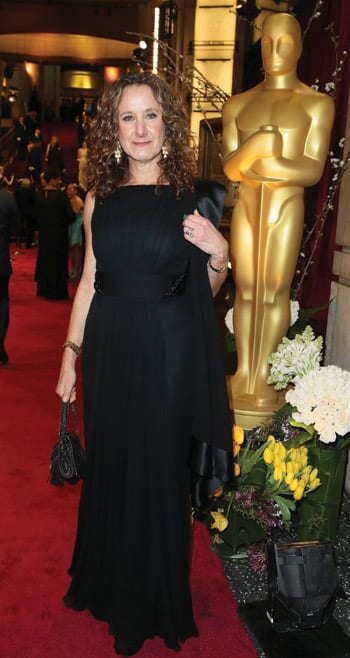
In 40 years on the talent side of entertainment law, dealmaker extraordinaire Linda Lichter has watched her field flourish. “I’ve been attending the Sundance Film Festival since the start,” she says. “For the first 10 years, hardly any lawyers or agents attended, and now it’s a massive business.”
Lichter has more than kept pace. Her star-studded client roster has included distinguished actors, directors, producers, and film collectives. Just a few examples: Little Miss Sunshine producers Albert Berger and Ron Yerxa and star Abigail Breslin, Pirates of the Caribbean screenwriters Ted Elliott and Terry Rossio, and DreamWorks Animation co-presidents Mireille Soria and Bonnie Arnold. For nearly 15 years, Lichter represented Gail Mutrux and Anne Harrison, producers of the 2015 smash The Danish Girl. She recently saw the film ascend from its creative inception right up to its international critical acclaim—including four Academy Award nominations and an Oscar for best supporting actress (Alicia Vikander).
Helping bring to the screen a portrayal of transgender people’s lives marks just one sign of the cultural evolution since Lichter’s early experiences as a Berkeley undergrad exposed her to radical-left politics and Marxist-feminist film theory.
Horizon-expanding as her time in Berkeley was, her commitment to the idea of joining the entertainment industry wavered—until, ironically, she was 3,000 miles from Hollywood. Working as an intern in Washington, D.C., for U.S. Senator Gaylord Nelson of her home state, Wisconsin, Lichter “got more excited from (longtime CBS news anchor) Walter Cronkite coming down the hall than from being on the Senate floor. I knew I needed to be in the media business.”
After earning her JD, Lichter left Berkeley for Los Angeles. From the outset, she represented independent filmmakers, directors, and writers—but artists became a greater focus as the entertainment industry itself became more inclusive and international. “Back then,” says Lichter, “there were no female entertainment lawyers to speak of and very few female executives or agents.” In her first job, she was only the second female lawyer—and the first entertainment lawyer—in the largest entertainment firm of nearly 100 attorneys.
Along with a handful of others, she organized the first professional network for women in entertainment law.
Lichter continues to see cultural and societal shifts— coupled with major changes in media—reshape the entertainment landscape. This fall, she’ll bring her expertise to benefit current Berkeley Law students when she teaches the course Negotiating Hollywood Contracts.
—KC Trommer
